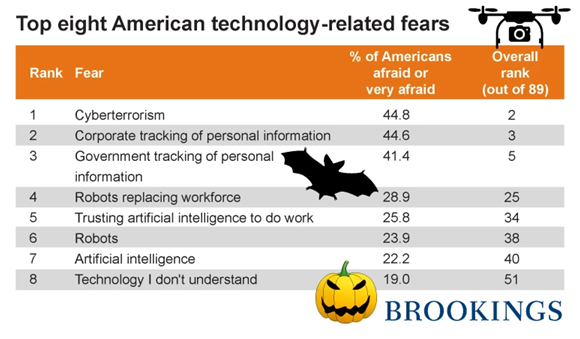Let’s go back a few months when AlphaGo went against Lee Sedol in a historic five-game Go match. In the end, Google’s AlphaGo left with four wins to 18-time world champion Lee’s one. As we all know, however, this event went beyond the scope of just any regular Go match. It was a clear display of the newfound capacity held by artificial intelligence.
Fast forward a few months and Google has taken another step and recently announced its DeepMind AI can now “think” by itself. As The New Stack quotes, “this new design [DeepMind AI] does take us closer to more intelligent machines that can learn how to learn and solve any number of general problems, rather than relying on brittle...Machines with a stronger artificial general intelligence (AGI) would be capable of tackling cognitive tasks as well as any human.”
Some are caught in awe with human achievements, while others are starting to experience fear towards technology. In fact, according to a 2015 survey by Chapman University, technology is the second most feared category amongst ten categories including the likes of government, personal anxieties, crimes, natural disasters, etc.
Diving deeper, the top three technology-related fears are cyberterrorism, corporate tracking of personal information, and government tracking of personal information. Now, these are all subcategories that have to deal with security. Not to understate the importance of it, but security is something that has always been an issue in different forms, even before technology was present. However, the fourth major technology-related fear – robots replacing workforce – not only has nothing to do with security, but appears to be a rather new concept. Interestingly, the remaining technology-related fears also seem to be interrelated with this idea of technology infiltrating our everyday lives in a negative direction.

The idea of technological unemployment does date back to the 16th century. However, it is until recently that 28.9% of Americans fear it, as stated by the Chapman University survey. Of course, this fear is understandable. After all, what are the 3.5 million professional truck drivers in the U.S. going to do when automobile companies start releasing self-driving cars in the market? How about professions like doctors and lawyers that could soon be replaced by robots that will think independently?
But the thing is, we should actually be welcoming such a future. Deloitte's Shift Index survey previously revealed that 80% of the workforce is dissatisfied with their jobs and Forbes recently reported that a majority of American workers are unhappy at work. Putting food on the table and supporting yourself and the ones you love is definitely important, but such efforts only seem to be passing down a miserable career to the next generation. Technology is what could make the change.

Byoung Joon (Daniel) Bae
Grade 12
Asia Pacific International School
By Byoung Joon (Daniel) Bae

